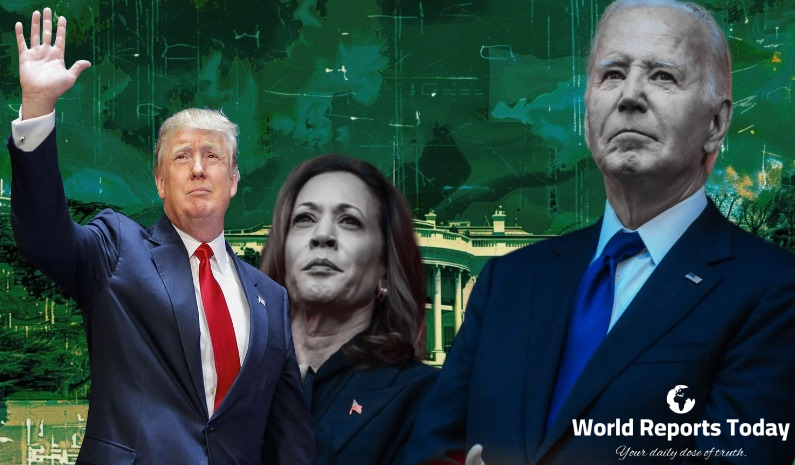A Nation Betrayed: Romania’s Dangerous Dance with Russian Influence! A Crisis for Europe and Democracy
Ready to uncover the truth? Sick of the lies? Join our Telegram Channel now. It’s time for the real story! My gratitude to all my readers!
Romania’s presidential election sparks a political crisis as far-right, pro-Russian candidate Călin Georgescu threatens EU and NATO stability.
Alarm bells are blaring across Europe as Romania, once considered a bastion of stability in Central and Eastern Europe, teeters on the edge of political catastrophe. The shocking rise of far-right, pro-Russian candidate Călin Georgescu in Romania’s presidential election has sent waves of panic through Brussels, Washington, and beyond. This isn’t just another political upset; it’s a seismic shift that could unravel the very fabric of the European Union and weaken NATO’s eastern flank.
The Rise of Călin Georgescu: A Political Earthquake
Sunday’s election results were nothing short of shocking. Georgescu, a political outsider with no party affiliation, surged to an unexpected victory in the first round of Romania’s presidential race. This ultranationalist and EU-skeptic candidate amassed a significant following through his plain-spoken, anti-establishment rhetoric and a formidable social media presence, with millions of TikTok followers. His rise represents a dramatic departure from Romania’s traditionally pro-European stance.
For decades, Romania has been a cornerstone of stability in the EU, avoiding the pro-Russian pitfalls seen in countries like Hungary and Slovakia. But Georgescu’s ascent could pull Romania into the orbit of Moscow’s influence, threatening its commitments to EU solidarity and NATO defense strategies.
Russia’s Hand in Romania’s Political Chaos
The timing of Georgescu’s rise is no coincidence. Russia has been waging a hybrid war across Europe, seeking to destabilize democratic institutions and expand its influence. Recent contested elections in Moldova and Georgia illustrate this strategy. With Romania’s geographic and strategic significance, a pro-Russian tilt in Bucharest would be a monumental victory for Moscow.
Romania borders Ukraine and plays a crucial role in NATO’s deterrence against Russian aggression. A government leaning toward Moscow could undermine collective defense efforts, weakening the alliance at a time of unprecedented tensions in Eastern Europe. As EU lawmaker Siegfried Mureșan warns, Georgescu’s success is “part of Russia’s hybrid war against European democracy.”
Reformist Elena Lasconi: Romania’s Last Defense
Facing off against Georgescu in the Dec. 8 runoff is reformist candidate Elena Lasconi, who has become a rallying figure for pro-European forces. Lasconi has issued stark warnings about the stakes of this election, urging Romanians not to let disillusionment with the current establishment pave the way for Russia’s influence.
Lasconi’s message is clear: “Do not let frustration with the current establishment become a vulnerability exploited by Russia.” Her campaign has focused on preserving Romania’s pro-European trajectory, emphasizing the dangers of falling back into the clutches of Moscow, a country that once occupied Romania after World War II.
A Turning Point for the EU and NATO
The implications of Georgescu’s rise extend far beyond Romania. As a pivotal member of both the EU and NATO, Romania’s political direction will influence the future of these institutions. If Bucharest veers toward a pro-Russian, anti-European stance, it could cripple the EU’s ability to function effectively, especially in building consensus on critical issues.
The EU is already grappling with internal challenges from member states like Hungary and Slovakia, where pro-Russian sentiments have gained traction. Romania’s shift could embolden other far-right movements across Europe, eroding democratic values and weakening the bloc’s collective resolve.
The Social Media Factor: A Weapon in Russia’s Arsenal
Georgescu’s popularity is fueled by his masterful use of social media, particularly TikTok. His ability to connect with younger voters and disenchanted citizens through viral content is emblematic of a broader trend in right-wing populism. By bypassing traditional media, he has crafted an unfiltered narrative that resonates with millions.
This phenomenon highlights the vulnerability of democracies to manipulation through digital platforms. Russia has long been accused of exploiting social media to spread disinformation and amplify divisive narratives. Georgescu’s rise is a stark reminder of how these tactics can influence political outcomes.
Lessons from Hungary and Slovakia
Romania is not the first EU member to grapple with the rise of pro-Russian, far-right politics. Hungary’s Viktor Orbán and Slovakia’s Robert Fico have openly defied EU norms, aligning themselves with Moscow on key issues. These leaders have shown how populist rhetoric and nationalist policies can erode democratic institutions and strain alliances.
If Romania follows a similar path, it could mark a tipping point for the EU. The bloc’s ability to enforce rule-of-law standards and maintain unity will be severely tested. For NATO, the loss of a reliable ally in Romania would weaken its eastern defenses, emboldening Russia to pursue more aggressive strategies.
The Stakes Couldn’t Be Higher
The outcome of Romania’s presidential runoff will determine the country’s future direction — and by extension, the stability of the EU and NATO. A victory for Georgescu would represent a triumph for Russia’s strategy of undermining European unity. Conversely, a win for Lasconi could reaffirm Romania’s commitment to democratic values and Western alliances.
The stakes couldn’t be higher. Romania is at a crossroads, and the decisions made in the coming weeks will reverberate far beyond its borders. The EU and NATO must act swiftly and decisively to support pro-democracy forces and counter Russian interference.
Conclusion: A Battle for Europe’s Soul
Romania’s political crisis is more than just a domestic issue; it’s a battle for the soul of Europe. The rise of far-right, pro-Russian forces threatens to undo decades of progress, destabilizing the EU and weakening NATO’s ability to defend against Russian aggression. This is a wake-up call for Europe and the world: the fight for democracy is far from over.
As the Dec. 8 runoff approaches, the eyes of the world are on Romania. Will it choose to stand with Europe, or will it fall into the shadow of Moscow? The answer will shape the future of the continent.
Our mission to champion democracy, freedom of speech, and patriotic values relies on the support of dedicated individuals like you. Your contribution is vital in helping us provide insightful analysis, uncover pressing issues, and inspire positive change in our nation.
Join us in our commitment to making a difference. Every donation counts and empowers us to continue our work in advocating for the values we hold dear.
Thank you for being a crucial part of our journey.

I’m a 33-year-old writer and the founder of World Reports Today. Driven by the timeless principles of democracy and freedom of speech, I use my platform and my writing to amplify the voices of those who uphold these ideals and to spark meaningful conversations about the issues that truly matter.






